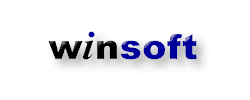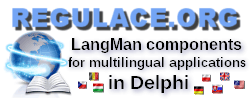ZylGPSReceiver.NET 3.30
By Zyl Soft
Update 11 Nov 2025In category
Description
ZylGpsReceiver.NET is an event driven .NET framework / component collection that communicates with a GPS receiver. It returns latitude, longitude, altitude, speed, course, heading and many other useful parameters of the current position and the parameters of the satellites in view. The component is extended to calculate distances and make conversions between different measurement units and there is also an extension for google maps support, to be able to visualize the GPS positions in real time on a map engine. his component works with any NMEA 0183 compatible receiver connected to one of the serial ports. NMEA 0183 (or NMEA for short) is a combined electrical and data specification for communication between marine electronic devices such as echo sounder, sonars, Anemometer (winds speed and direction), gyrocompass, autopilot, GPS receivers and many other types of instruments. It has been defined by, and is controlled by, the US-based National Marine Electronics Association. The component supports GPS (USA), GLONASS (Russia), BeiDou (China), Quasi-Zenith (Japan) and Galileo (EU) satellites, but theoretically you can use for any other satellite as well. You can use it also with USB, IrDA and Bluetooth devices, because these devices have a driver that redirects the input from the USB, IrDA or Bluetooth port to a virtual serial port (you can check it in System/Device Manager/Ports). If your USB device is not provided with such a driver, then use a USB controller whose vendor provides a virtual serial port driver, such as FTDI or use a USB/RS-232 adapter. For Garmin receivers you have to install Spanner software. To connect to an Android smartphone's GPS, you can download GPS2Bluetooth (or GPS2NET for TCP) application from playstore and connect your phone to your PC through bluetooth (GPS2BT service). It has support for TCP and UDP connections as well or you can decode files in plain text NMEA or GPX formats. The component collection contains 8 components. BaseGpsReceiver is a custom .NET component, which is designed to be the base class of any kind of GPS receivers. This component contains an NMEA decoder engine and it works with any NMEA compatible GPS receiver. You can extend this class easily to process NMEA data from any kind of sources as files, sockets, web services and so on. GpsReceiver is an extension of BaseGpsReceiver, which processes NMEA data from serial, USB or Bluetooth ports. It's thread based, which means that the reading process is handled by a different thread. ManagedGpsReceiver is an extension of BaseGpsReceiver, which processes NMEA data from serial, USB or Bluetooth ports. If you need 100% managed code, without any Windows API, you can use this class. Otherwise we recommend GpsReceiver class. FileGpsReceiver is an extension of BaseGpsReceiver, which processes NMEA data from a text file. GpxGpsReceiver is an extension of BaseGpsReceiver, which processes GPX xml files with GPS data. TcpGpsReceiver is an extension of BaseGpsReceiver, which processes NMEA data from an TCP socket. UdpGpsReceiver is an extension of BaseGpsReceiver, which processes NMEA data from an UDP socket. NmeaDecoder is an extension of BaseGpsReceiver, it implements an NMEA decoder.It works like a GPS Receiver, but you have to feed it with NMEA sentences programatically from the constructor or with the Decode method. NmeaEncoder is a simple class to encode position data to NMEA format. Maps is a visual control to display GPS positions on Google Maps or Open Street Map, with more features. Attention: starting with 2018, you have to use a valid Google Maps JavaScript API key. You can get it from here for free. After you have it, initialize the ApiKey property of the component with this key. For .NET 5.0 or later you have to install WebView2 runtime. ZylGpsReceiver.NET Mobile is an event driven Compact Framework.NET component for Windows Mobile 5.0-6.5, Windows CE 5.0, that communicates with a GPS receiver. It is designed for mobile devices such as Pocket PCs, which run on Windows Mobile 5.0-6.5, Windows CE 5.0 operating systems. This component works with any NMEA 0183 compatible receiver connected to one of the serial ports. NMEA 0183 (or NMEA for short) is a combined electrical and data specification for communication between marine electronic devices such as echo sounder, sonars, Anemometer (winds speed and direction), gyrocompass, autopilot, GPS receivers and many other types of instruments. It has been defined by, and is controlled by, the US-based National Marine Electronics Association. The component supports GPS (USA), GLONASS (Russia), BeiDou (China), Quasi-Zenith (Japan) and Galileo (EU) satellites, but theoretically you can use for any other satellite as well. You can use it also with USB, IrDA and Bluetooth devices, because these devices have a driver that redirects the input from the USB, IrDA or Bluetooth port to a virtual serial port (you can check it in System/Device Manager/Ports). If your USB device is not provided with such a driver, then use a USB controller whose vendor provides a virtual serial port driver, such as FTDI or use a USB/RS-232 adapter. For Garmin receivers you have to install Spanner software. To connect to an Android smartphone's GPS, you can download GPS2Bluetooth (or GPS2NET for TCP) application from playstore and connect your phone to your PC through bluetooth (GPS2BT service). It has support for TCP and UDP connections as well or you can decode files in plain text NMEA or GPX formats. The component collection contains 8 components. The following image displays the class diagramm: BaseGpsReceiver is a custom .NET component, which is designed to be the base class of any kind of GPS receivers. This component contains an NMEA decoder engine and it works with any NMEA compatible GPS receiver. You can extend this class easily to process NMEA data from any kind of sources as files, sockets, web services and so on. GpsReceiver is an extension of BaseGpsReceiver, which processes NMEA data from serial, USB or Bluetooth ports. It's thread based, which means that the reading process is handled by a different thread. ManagedGpsReceiver is an extension of BaseGpsReceiver, which processes NMEA data from serial, USB or Bluetooth ports. If you need 100% managed code, without any Windows API, you can use this class. Otherwise we recommend GpsReceiver class. FileGpsReceiver is an extension of BaseGpsReceiver, which processes NMEA data from a text file. GpxGpsReceiver is an extension of BaseGpsReceiver, which processes GPX xml files with GPS data. TcpGpsReceiver is an extension of BaseGpsReceiver, which processes NMEA data from an TCP socket. UdpGpsReceiver is an extension of BaseGpsReceiver, which processes NMEA data from an UDP socket. NmeaDecoder is an extension of BaseGpsReceiver, it implements an NMEA decoder.It works like a GPS Receiver, but you have to feed it with NMEA sentences programatically from the constructor or with the Decode method. Map is a visual control to display GPS positions on google maps and OSM, with more features. ZylGpsReceiver.NET Mobile is an event driven Compact Framework.NET component for Windows Mobile 5.0-6.5, Windows CE 5.0, that communicates with a GPS receiver. It is designed for mobile devices such as Pocket PCs, which run on Windows Mobile 5.0-6.5, Windows CE 5.0 operating systems. read more NMEA 0183 (or NMEA for short) is a combined electrical and data specification for communication between marine electronic devices such as echo sounder, sonars, Anemometer (winds speed and direction), gyrocompass, autopilot, GPS receivers and many other types of instruments. It has been defined by, and is controlled by, the US-based National Marine Electronics Association. Supported NMEA sentences: GPGLL, GPGGA, GPVTG, GPRMC, GPGSA, GPGSV, GPZDA, GPMSS, GPAAM, GPRMB, GPBWC, GPWPL, GPRTE, GPXTE, GPHDT, GPHDM, GPHDG, GPGNS ZylGpsReceiver.NET is written 100% in C#, based on .NET framework and Windows API. With this component you will be able to develop robust GPS applications based on the .Net framework. Possible applications can be: * Vehicle Navigation * Marine Navigation * Fleet Management * Emergency Locator * Geographic Surveying * AVL and Locating-Based Services * Personal Navigation or touring devices * Tracking devices * Sporting and Recreation * Farming * Time synchronization The Global Positioning System (GPS) is a worldwide radio-navigation system formed from a constellation of 24 satellites and their ground stations. GPS uses these satellites as reference points to calculate positions accurate to a matter of meters. In fact, with advanced forms of GPS you can make measurements to better than a centimeter. In a sense it's like giving every square meter on the planet a unique address. GPS receivers have been miniaturized to just a few integrated circuits and so are becoming very economical. And that makes the technology accessible to virtually everyone. These days GPS is finding its way into cars, boats, planes, construction equipment, movie making gear, farm machinery, even laptop computers, tablets, mobile phones or smart watches. GPS technology has matured into a resource that goes far beyond its original design goals. These days scientists, sportsmen, farmers, soldiers, pilots, surveyors, hikers, delivery drivers, sailors, dispatchers, lumberjacks, fire-fighters, and people from many other walks of life are using GPS in ways that make their work more productive, safer, and sometimes even easier.Informations
- Status: Fully functional
- Source: SW
- Price: $199
- Source price: $499
- Size: 25 699 759kB
Platforms:
- C#
- C# Builder 1
- Delphi 2005
- Delphi 2006
- CodeGear RAD Studio
- Delphi 8
- Delphi Prism 2009
- Delphi Prism 2010
- Delphi Prism XE
- Prism XE2
- Prism XE3
- Visual Studio 2002
- Visual Studio 2003
- Visual Studio 2005
- Visual Studio 2008
- Visual Studio 2010
- Visual Studio 2012
- Visual Studio 2013
- Visual Studio 2015
- VC++
















